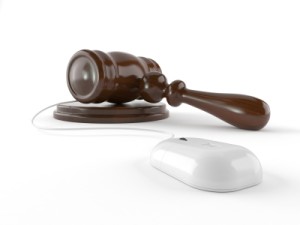
The thought is disturbing. An injury attorney doing his job will go to great lengths to discredit a physician defendant. Character manipulation can occur independent of the medical facts. And when it comes to social dialog, any public comment can be used out of context. But the subtle sarcasm that brings a human element to a Twitter thread may appear quite different when a tweet is displayed on its own. Perception trumps reality when an isolated comment is projected before a jury.
I understand that what I publicly share can be maligned. Perhaps my thoughts, wishes, dreams, beliefs, links, and whimsical ideas will at some point be used against me. But I’ll take my chances. Relative to its potential risk, public thinking has brought me opportunity. And the day slip-and-fall attorneys dictate how I interact I suspect I’ll be facing bigger problems than my digital footprint.
Despite the call for free will, it’s situations like these that should serve as a reminder that what happens on Twitter stays on Twitter.